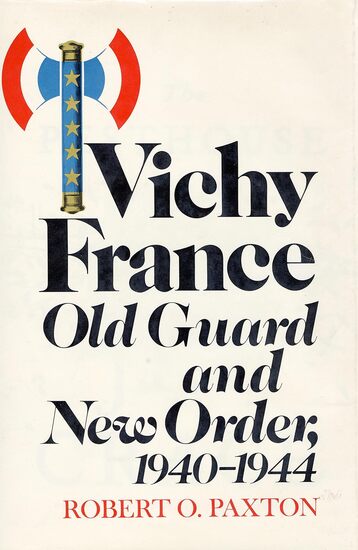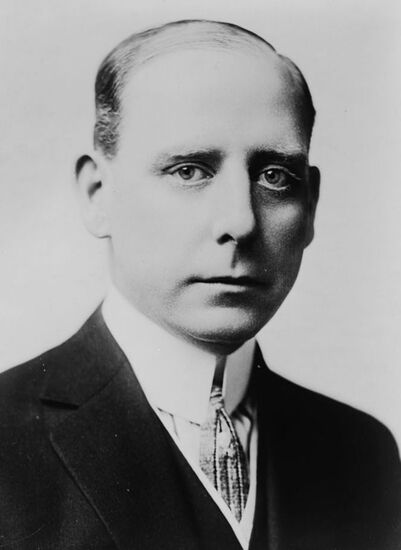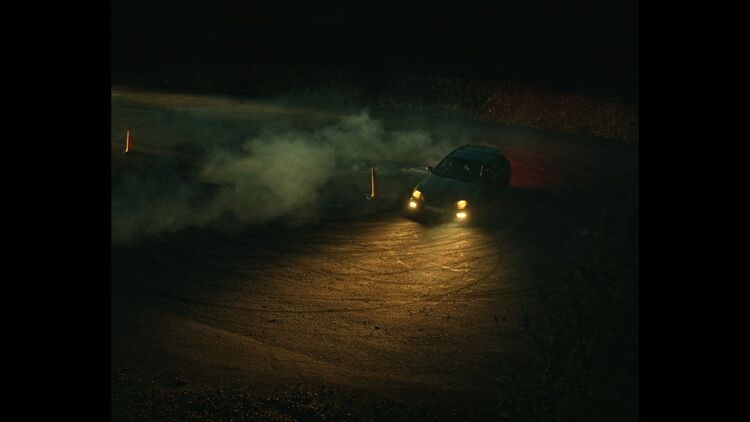A picture taken in recent years of the Christmas tree in front of India House, 1 Hanover Sq., near Wall Street. PHOTO BY JAMES RODGERS
By Peter McDermott
Often it’s all too early and too much. Songs, for instance, coming from the supermarket PA system that evoke a golden age of the holidays that we can’t ever have back. They were, after all, first popular when our parents and grandparents were young.
But maybe this year we really need the history, partly as a reminder that those generations made it through some stuff; maybe in 2020 we can use our memories as a personal resource.
And so the Echo has asked some people in the arts about their favorite Christmas places to go in the mind and here below are their replies.
A CHRISTMAS STAR / Karen Daly
Our family gathered at my grandmother’s on Christmas Day.
We set the dining room table with her treasured linen and china. I don’t recall how we fit 20 people, even with the kiddie table, or how she managed to cook the turkey and trimmings in a tiny kitchen. But we did, and she did, and it was a feast.
There were gifts and laughter galore. My great-uncle always did his Jackie Gleason impression, embarrassing my great-aunt.
The Christmas I turned 12, we were wild with excitement—at least the women were. My cousin’s wedding was Dec. 26! She would wear ivory satin, and St. Teresa’s would be filled with poinsettia and greenery.
When my cousin’s fiancé, a handsome curly-haired Irishman, strode into the house singing “I’m getting married in the morning,” we swooned.
Yes, we would all get to the church on time.
Merry Christmas!

Karen Daly, pictured here at age 7, is secretary of the Irish American Writers and Artists.
***
ALL WERE WELCOME / Maeve Price
Happy Christmas memories? They all meld, but what comes to mind are the sights, sounds and smells of Christmas in our run-down tumble-down broken-down house. We had little money. But. The smell of the damp, chilly night air and the Tree; the twinkling lights that breathed and shimmered; the red candle in the window signaling a welcome to weary travelers; excitement over Santy and leaving him milk and biscuits; the best Ham; Mam's stuffing; hiding under the bedclothes; hearing Rudolph over the house; listening to every creak and settle of the house until we fell asleep; noise and laughter and delight that Santy came; dogs with antlers and squeaky toys and Butcher bones and cats with bows; and “Chitty Chitty Bang Bang.”
Actor Maeve Price grew up in a town in County Dublin and now lives in New York.
***
A QUIET TIME / Joby Fox
I have a wonderful memory of my father sitting in front of the television on Christmas Eve in our family home in Belfast. It was 1972, and crazy chaotic times. The Troubles were raging. My poor father and mother had been through a lot trying to keep their 10 children safe. My father never seemed to have a moment to relax at all. But I recall that Christmas, late into the night of Christmas Eve, “The Quiet Man” was showing on the television. My father who was a countryman from Fermanagh was so enthralled, amused, entertained and at peace with himself. I remember observing him more than I watched the film. It was only him and me in the room as everyone had gone to bed. He may not even have been aware that I was there. It was sheer delight to see him take time for himself.

Joby Fox recently released the song “Brexit Blues.”
***
NOT MUCH TO ASK / Honor Molloy
Dear Santy, Will you bring me a purr of red bally shoes so I can dance to the music on telly and take lessons. I would like a dolly and a cookery set to make her Christmas tea and supper. My little brother wants a teddy and a little coat for the teddy bear to keep it warm. He can't write himself so I have to for him — Honor’s word-for-word letter to Santy when she was 6
Honor Molloy’s most recent play, “Round Room,” was staged in New York in January 2020.
***
TREES FROM THE NORTH / Peter Quinn
My special memory is the Tremont trainyards in the Bronx. A bleak expanse of tracks and sheds, they were magically transformed each Christmas into a pine forest. Box cars filled with freshly cut fir trees arrived from Quebec. The men who brought them down wore red lumber jackets, spoke with heavy French accents, and smelled of pine needles and whisky. The trainyards became our North Pole. My brother and I went each year with our father to get our tree. One year, it snowed and we pulled it home on a sled. Then the time came when, for whatever reason, the trains stopped coming. Yet each year, with the first scent of a Christmas tree, I’m transported back to that festive time and place.
Peter Quinn is the author of the novels “Banished Children of Eve,” “Hour of the Cat” “The Man Who Never Returned” and “Dry Bones.”
***
DOWNHILL RACERS / John Spinks
The snow in the song was “Deep and Crisp and Even” and we had the same snow. The streets were not plowed. The transformation was pure and as kids we dived into it. Gone for the duration without supervision or helmets. We’d go sledding. Good snow and hilly terrain made for exciting sled runs. The slow trudge pulling the sled uphill. On the downward run the reward for the trudge — an exhilarating ride.
You’d see some robust sleds, built to last. Put together with metal and lumber from the shipyards by men who knew their craft.
Brooklyn-based artist John Spinks was born in Ennis, Co. Clare, and grew up in Newcastle in England.
***
THE GRAND EXCHANGE / Margaret M. Johnson
One of my fondest, and most delicious, Christmas memories took place around noon each Christmas Eve. It was then that the Herlihy sisters, spinsters Mary, Agnes and Catherine, called to tell my mother that their "cake" was ready for pick-up. Said cake was a hot milk sponge cake that was, in my child's mind, at least a foot long. It was a luscious cake, with billows of yellow and white swirled through it and heavily decorated with icing and mini candy canes. It was their much anticipated gift to friends at Christmas. In exchange, my mother would send them a delicate mince pie made in a shallow white ironstone plate (ovenproof, I assume) that resulted in a very thin pie, a stark contrast to the grand cake from the Herlihys. I vaguely recall other such exchanges taking place on the days leading up to Christmas, but the "cake" stands out most vividly.
Irish Echo columnist’s Margaret M. Johnson’s most recent book is “Teatime in Ireland.”

Natalie Wood in "Miracle on 34th Street."
THE REAL DEAL / Peter Duffy
Every Christmas season, the Sony Trinitron in our apartment seemed to settle on “Miracle on 34th Street,” the black-and-white chestnut from 1947 starring Natalie Wood as the precocious 8-year-old who's gonna need hard proof before she believes in Santa Claus. The object of her skepticism is the avuncular Macy's department store Santa portrayed by an old hand of the London stage, Edmund Gwenn, whose character sets the plot in motion by gently insisting to a cynical world that he is, in fact, the one and only Kris Kringle. There have been many celluloid Santas—can we concede that the worst was the Kim Il-Sung-like figure surrounded by legions of addled-brained elves in “The Polar Express”?—but Gwenn's Mr. Kringle will always be my favorite, at least as far as these things go. (It's hard to see the film as anything other than a consumerist love song to the big box department store.) The Santa of “Miracle” is kindly, intelligent, perceptive and forgiving. He isn't too saintly to have a temper, which he directs toward the Grinch of the piece, the bumptious in-store psychologist who wants to ruin Christmas. Our Santa speaks perfect Dutch. He breaks into song. And he’s good with a quip. His employee card says he’s “as old as my tongue and a little bit older than my teeth,” which is pilfered from Jonathan Swift. A Santa Claus who quotes Swift? Where do I sign up? I’d ride shotgun in his reindeer sleigh any Christmas Eve.

Peter Duffy signing a copy in 2019 of his most recent book, “The Agitator: William Bailey and the First America Uprising Against Nazism”
***
FAR FROM HOME / Caoilinn Hughes
My first Christmas in New Zealand could have been melancholy and wistful given that I had no return flight, but it was quite the opposite. It was spent on a long, white sand beach playing Canadian football in the thick smoke of public barbeques with new friends; disgusted by the propensity of beetroot in Kiwi salads; riskily swallowing “pineapple lumps” (chocolate-coated marshmallows with 4 percent real pineapple) despite a pineapple allergy; slack-jawed ... not by the pineapple allergy but by the crimson explosions of pohutukawa trees in full summer bloom. The only woe was the pong of sweaty Santa costumes.

Galway-born Caoilinn Hughes's debut novel was "Orchid and the Wasp"; her second, "The Wild Laughter," was published in the U.S. in July 2020. PHOTO BY DANIJEL MIHAJLOVIĆ
***
LOST AND FOUND / Stephen Butler
Back in 2001 I worked at 25 Broad St., blocks from Ground Zero and within the militarized zone that was created around the New York Stock Exchange. Tenants were grateful the staff had kept the building running during those terrible days, and throughout December I accumulated a nice pile of tips. On St. Stephen’s Day I went to deposit the pile at my own bank in Woodside, but the line was too long, so I drove to work with the cash and checks. After arriving, I realized my envelope was gone (it fell onto Canal Street when, stuck in a traffic jam behind a big truck, I had been stupid enough to open my door to see what was causing the delay). Amazingly, the envelope was found by a wonderfully honest woman from Astoria named Dina, who tracked me down and returned every cent. A Christmas miracle indeed!
Stephen Butler teaches at NYU and is the author of “Irish Writers in the Irish American Press, 1882-1964.”
***

Edward Gwenn in "Miracle on 34th Street."
SANDWICH OF THE YEAR / Kevin Holohan
Ejected from our Christmas Eve shopping base-camp in Regan's (proper pub, no frills!), we gather our packages and step into the nostril-chilling, stout-scented air, ignoring Mrs. Regan's exhortation to hurry to midnight Mass at the Pro-Cathedral. We begin the walk home from town through the dark and quietening streets. The last bus is long gone, as Phil Lynott says. Our company gradually diminishes as people peel away homeward. I walk the last stretch alone, crossing the loud-cold River Tolka and ascend the climb of Mobhi Road. Finally home, in the ticking silent kitchen, there it is, long-simmered, left out to rest by my mother: the Christmas ham, still warm and ripe for plunder for the most anticipated and most delicious sandwich of the year. Tomorrow, carving the ham, my father will gently mock my inexpert hacking and ask: “Did you get Mass?” The answer will be: “Midnight. Pro-Cathedral.”

Kevin Holohan is the author of the novel “The Brothers’ Lot.”
***
THREE DAYS OF FUN / George Heslin
A Christmas memory that comes to me is the Christmas of 1997. A major storm descended upon Limerick where my family live. The storms continued to rage in the days leading up to the holiday. Finally the electricity company cut off across Limerick, a city in darkness on Christmas Eve. As a result my siblings and my many nieces and nephews arrived at my parents’ home. Due to the fact that my parents lived near a hospital their power had not been affected. It would have been many many years since our family had stayed together under one roof. Three days of amazing family fun, laughs and memoirs flowed. What we were not to know was this would become my Mom's last Christmas as illness arrived to her the following year. Looking back the darkness of the storm brought us together in the most magical and simple of ways. All we had was each other and time. Time stood still for that Christmas and the memories live on as precious, pure moments of gold filled with joy.
George Heslin is executive director of the New York Irish Center.
***
THE PREVIEW / Elizabeth O’Reilly
I recall a Christmas Eve when I was 8 or 9 years old and was home alone with my older brother and older sister. Marian climbed to the top of the wardrobe and took down two Tressy dolls and an Action Man. I didn’t ask any questions. Tressy did not disappoint. She had a button in her stomach that, when pressed, allowed a loop of long hair to come out of an opening in the center of her head. What a miracle! The doll could have short and long hair simultaneously! Blissful hours of hairstyling lay ahead. For a time all three of us played happily, then we carefully replaced the dolls in their respective boxes, and put them back on top of the wardrobe. No adult ever suspected, which made the spice of that Christmas really exciting. I’m sure Santa would have approved.

Painter Elizabeth O’Reilly, who is originally from West Cork and now lives in Brooklyn, is pictured at an event at the Green Door Gallery in Williamsburg on Sept. 27.
***
MAYHEM IN OLD MERVUE / Seamus Scanlon
What I remember most about Christmas in Ireland were the hundreds of Wild West Sheriffs brandishing rifles and six guns, wearing holsters and shining silver badges rushing through Old Mervue on Christmas morning. Some had revolvers that had an inbuilt ricochet effect as if the fired bullet had hit a rock or other obstacle on the way to the target. Very impressive. The boys ran through Emmet, Barry and Tone avenues as if they were on horseback firing at bystanders and especially girls who watched back in pure disdain knowing they were destined to be forever underwhelmed by the males of the species. The screening of the U.S. show “The Virginian” on Irish TV prompted this annual jamboree. Some of the sheriffs became confused at times and did ululating sounds like Indian war cries but no one minded. Even back then we could not distinguish friend from foe. And that has never changed.
Seamus Scanlon is an educator at City College Downtown and a playwright.

James Drury was "The Virginian."
***
ONE TO FORGET IS MEMORABLE / James Rodgers
Our ship got into Barcelona on Christmas Eve 1982. We headed to the nearest bar, where I soon lost my wallet and military identification card. The Shore Patrol told me to return to the ship. Instead I returned to the bar to look for my wallet. The owner slapped a bottle of beer on the counter. I told her I had no money. She said it’s Christmas so it’s on the house. Just as I was beginning to believe in the goodness of humanity the Shore Patrol burst into the bar. I pulled rank and told them to disappear. They did.
The next morning I was informed I was “in hack,” non-judicial restriction for officers. I spent Christmas week on the ship watching B movies, except every other night I had shore patrol. I would slap the SP band on my arm and with a petty officer and the jeep patrol the bars to keep our crew out of trouble. By January we were in Lebanon as part of the U.N. Peacekeeping Force.
I have been fortunate all my life, first with six siblings and parents who made Christmas magical and then with my wife and two children who have done the same. All wonderful—except Barcelona 1982. Every Christmas I feel grateful and blessed and I think of Barcelona and say an extra prayer for the millions of people around the world who are spending Christmas alone or lonely. In the end, God works in mysterious ways.
James Rodgers is the author of the novel “Long Night’s End.”









